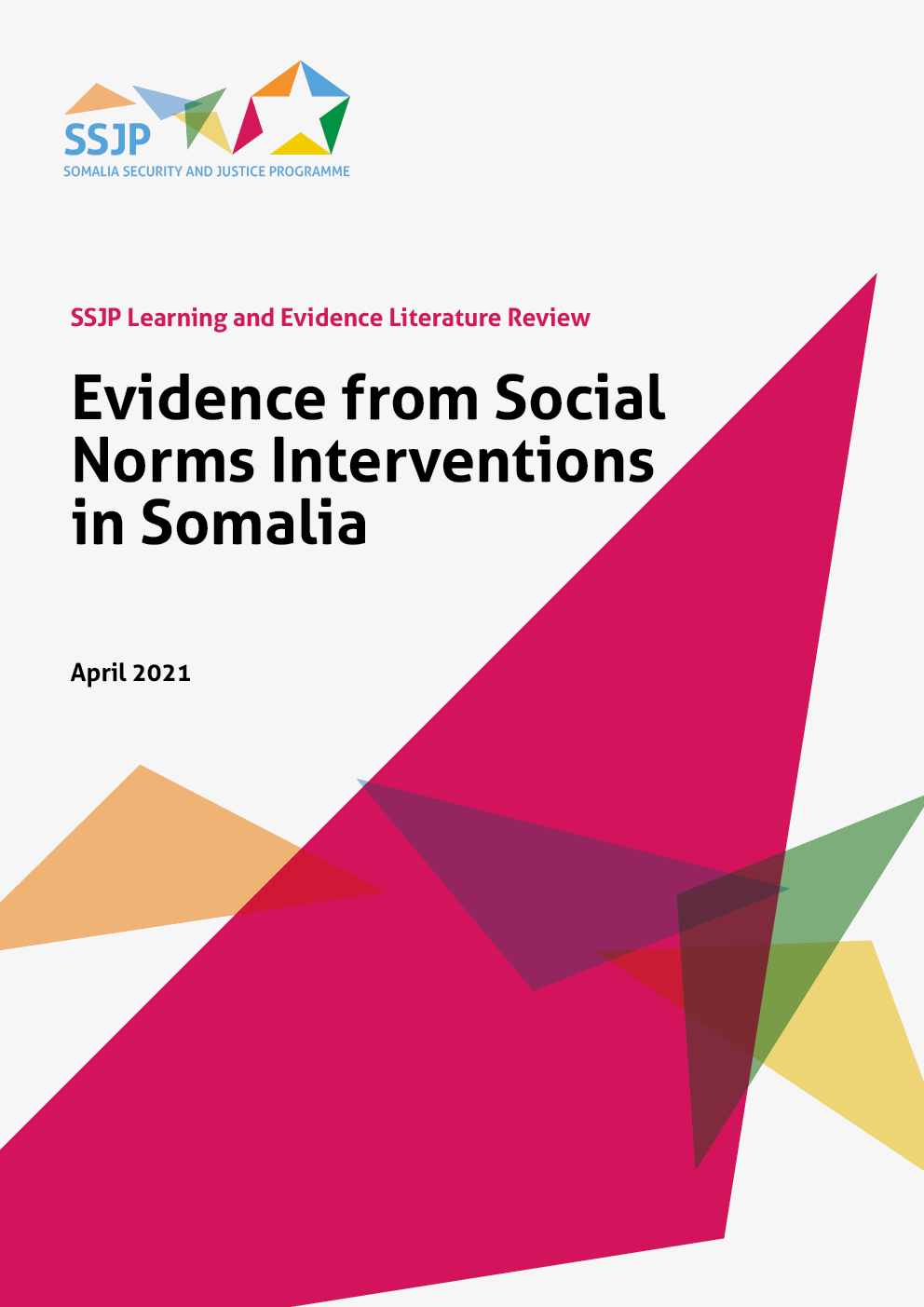Literature on social norms relating to security and justice in Somalia is very limited – unsurprising given the emergent nature of the social norms field globally and in Somalia. Of the 15 identified studies that contained a focus on social norms relating to security and justice in Somalia, most did not explicitly seek to identify social norms. The overwhelming majority of those that did, focused on gender-based violence and have been included in a separate literature review. The studies that featured social norms were generally judged to be low-quality evidence.
Norms – with varying degrees of influence (using the theory of normative spectrum reference] identified in the studies reviewed can be categorised as follows:
- Selection of security and justice providers
- Interactions between security and justice providers
- The conduct of state police officers
- The inclusion of women in the state police
- Customary norms within xeer, the traditional justice system
The literature highlights that it is important to consider the strength of social norms when designing interventions as a different approach may be required when addressing strong versus weak norms. For example, an intervention that seeks to challenge a harmful norm that is considered acceptable may require magnifying the voice of those who are against the norm, while an intervention to address a harmful, yet obligatory, norm may require deeper work at the attitude level and the creation of coalitions that coordinate for collective action after having changed their attitudes.

